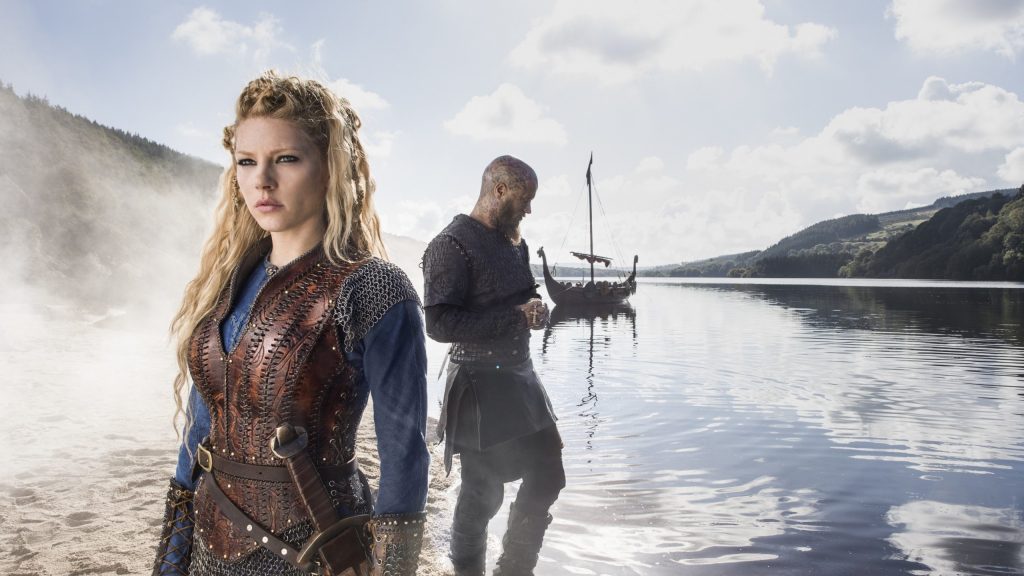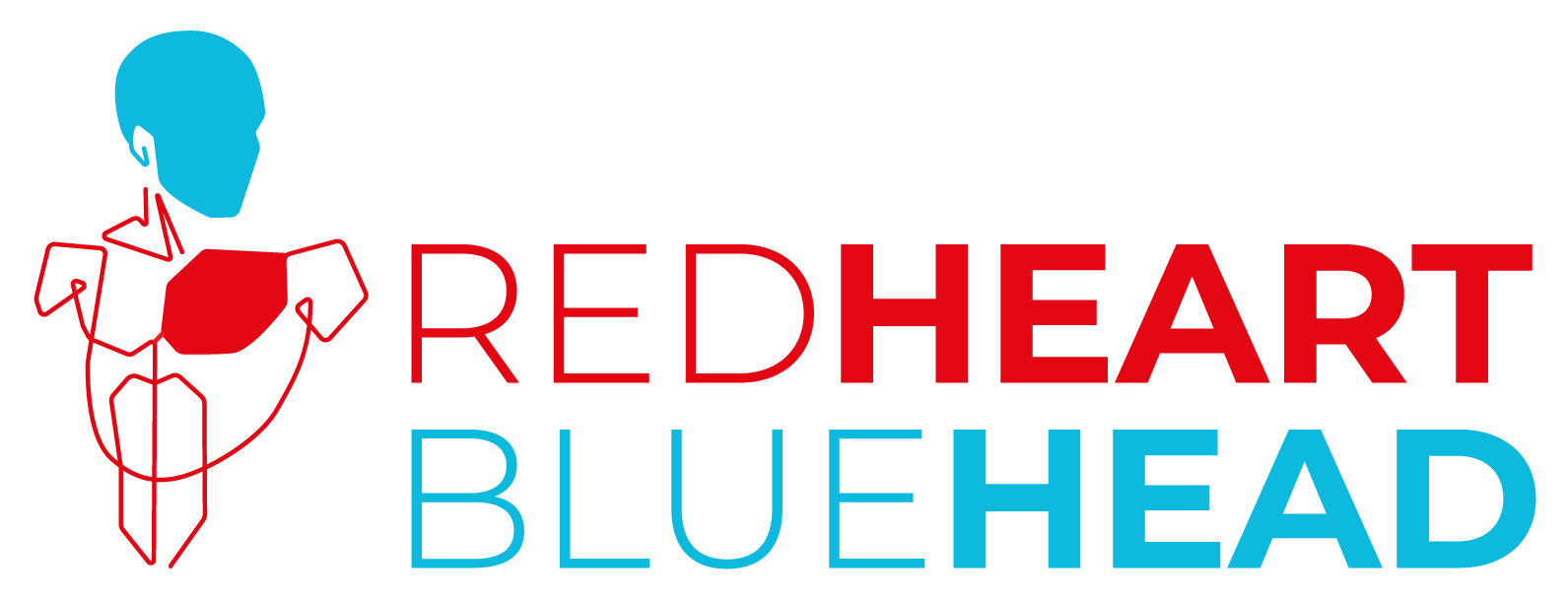We’re all a bit Viking

Viking warriors Lagertha and Ragnar Lothbrok from the History Channel’s ‘Vikings’. Image from Myrddin Publishing
Who are you?
When people ask us about ourselves, we usually answer by referring to our family, our job or where we’re from. That’s because we all feel strong ties to our relatives, family name, birthplace, home, workplace and local neighbourhood. These people and places form some of our most important links and tribes. But do we really know which tribes we’re part of? Are we all a bit Viking?
When we’re asked about ourselves, our answers indicate which of our tribes we associate with most. The context is always a factor, but it’s our choice of reference point that matters. Take a hypothetical person who was born, lives and works in York. If she’s asked where she’s from, she could refer to York (her local tribe), North Yorkshire (her first form of Super-tribe), Yorkshire (a higher level Super-tribe), England (a higher Super-tribe), Great Britain (even higher) or higher still, the UK. Despite using a simplistic example, there isn’t just one answer. Which level of tribe do you associate most with?
We are all unique
Every one of us is ‘from’ a unique mixture of people and places. No one has quite the same combination of tribes as us. That could make us feel isolated and alone, but it shouldn’t. It means we’re part of many tribes. The combination we inherited at birth is with us for life and we can add more. We get to decide where we live and work, with whom; and which tribes and Super-tribes we are part of. Then, when we’re asked about ourselves, we have to decide which to mention. When you’re asked about yourself, which tribes and Super-tribes do you refer to?
We all need to know who we really are and where we fit in, to feel our most comfortable and confident. Our close tribes give us core strength, which helps to power us through life. But we mustn’t forget that our connections reach farther than our immediate contacts. If our comfort zone is too narrow, our understanding and opportunities will also be too narrow. The more tribes and Super-tribes that we’re part of, the more comfortable and confident we’ll become. We just need to broaden our vision and loyalties to be our most successful. Our immediate family and our local community will always be special to us, but our Mitochondrial and Y Chromosome DNA remind us that we are part of a much larger Super-tribe.
I went to a school called St. Peter’s in York. It was founded in 627 AD. It is allegedly the fourth oldest school in the World. One of its early Headmasters was a scholar called Alcuin. In the junior school, I was in ‘Alcuin’ House. I hadn’t thought about Alcuin for a very long time (why would I?) until last week, when I belatedly started watching the television series ‘Vikings’. Seeing Ragnar and Lagertha Lothbrok landing their longship in England got me Googling the real Viking history.
Our Viking ancestors
The first recorded Viking raid on Britain was in 789. Four years later a monastery on Lindisfarne was sacked, which is where the ‘Vikings’ series begins. It turns out that we know about that attack because of a letter of sympathy, sent shortly afterwards, from Alcuin to Ethelred the King of Northumbria. Yes that’s the same Alcuin, who by then was a teacher and close adviser to Charlemagne (Charles The Great). Like many invading armies throughout history, some of the early Vikings’ actions were brutal and horrific. Those actions were rightly condemned by Alcuin and many others. But that’s not the whole picture. Modern historians consider that the Vikings were far more rounded and sophisticated than the myths might have us believe. Some were violent criminals, but the Vikings were also skilled farmers, sailors, navigators, blacksmiths, craftspeople, jewellers, traders and settlers. And when they fought, Viking men and women stood together, side by side, behind the shield wall. Just like Ragnar and Lagertha.
The Vikings, as we collectively refer to them, came from Norway, Denmark and Sweden. Most of the raids on England came from Denmark, striking the East coast of England, from Lindisfarne down to London. Much of the East of England was subjected to Danelaw. York (Jorvik) became the Danish capital in England. Many other places also take their names from the Danish invaders. Any place name ending in thorpe, ness, thwaite, by, keld, toft or kirk was once occupied by the Danes. Some larger examples include Whitby, Wetherby, Skegness, Lowestoft and Scunthorpe. If you’re from one of these places, you may have Viking heritage. Raiders from Norway swept into Scotland, Ireland and the North West of England. Those Vikings left a similar legacy.
Modern Vikings
Having begun by looting and murdering Christian monks, the Viking invasions came to a halt when Christianity spread to Scandinavia in the 11th Century. Violence gave way to peaceful settlement and trade. Tens of thousands of Vikings settled, farmed and traded in the UK, marrying into the local population and giving us the Viking word ‘husband’. As we’ve noted already, our family tribes are hugely important to modern society too. And some of our family names reveal a direct Viking connection. If your surname ends in ‘son’ or ‘sen’ or if it’s Doyle, McLeod, Rogers, Long, Short, Good or Wise you may well have Viking ancestors. But that’s not all, with the constant migration of people over the centuries, Scandinavian DNA has gradually spread within the UK population. Recent studies have shown that 6% of us have Danish genes and 4% of us have Norwegian genes. There are probably 7 million people in the UK with Viking ancestry.
Our mix of DNA
And we’re not just related to the Vikings. We’ve also inherited DNA from all the other ‘invaders’ who’ve landed in the UK, including the Normans from modern France (William the Conqueror was descended from the Viking Rollo) and the Romans (Italy), Angles (Germany), Saxons (Germany), Jutes (then Germany, now Denmark) and Frisians (Germany). Our place names confirm our international heritage. For example, Essex is short for East Saxons and Sussex for South Saxons. East Anglia was named after the invading Angles who settled there. In fact it was only after the Angles invaded in the 5th Century that we became known as Angle-land, which was later shortened to England.
Ever since a brief French assault in 1797, we have avoided further invasion. As a result, peaceful trade and migration have flourished. With a relatively stable democracy and economic prosperity, the UK has attracted settlers from every other country across the World. That process of immigration has brought the UK a rich mix of people from around the World. We are a product of multiple invasions and millions of peaceful migrations. We have fabulous diversity and international connections.
Each of us is a bit Viking
Despite all the centuries of relative peace and calm, the Viking hunger for exploration and expedition has endured. Like them, we are restless for expedition and adventure. Like them, we travel extensively across the globe looking for new experiences and trading opportunities. Our Viking history feeds our modern lives. It’s a part of who we are. The Vikings were bold and ambitious and so are we. They were highly skilled craftspeople and so are we. Despite the passing centuries, we remain Viking in spirit and outlook. They never thought too narrowly or limited their own ambitions; and nor should we.
It isn’t wrong to think tribally when we think about ourselves, but we should think Super-tribally too. Brexit is done and we need to make the very most of our future. Our thinking shouldn’t be limited to the comfort and familiarity of our island nation. The wider World has so much to offer us and we are well connected to it already. Despite the economic boundaries and the frustrating red tape, we can develop strong, global relationships with mutual benefits. We are highly skilled and excellent navigators. We just need to be bold and adventurous. That shouldn’t be a problem for us. We’re all a bit Viking after all.
